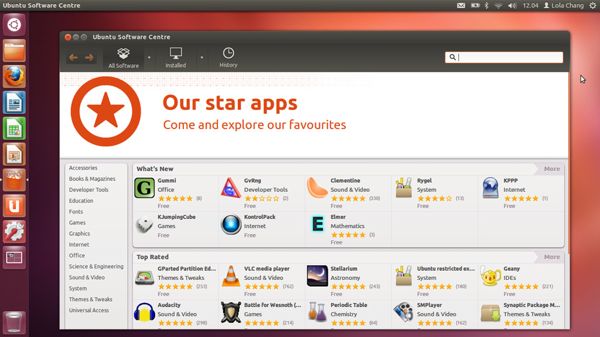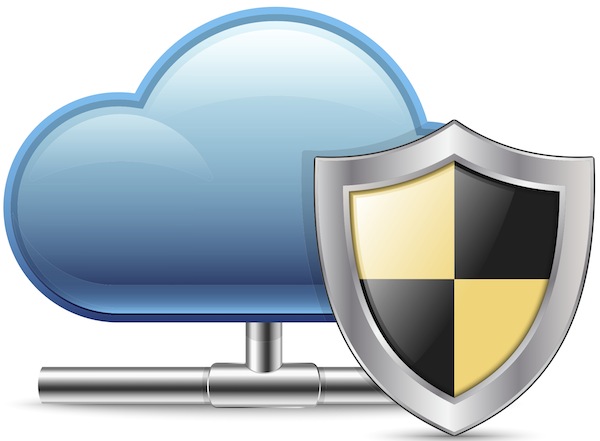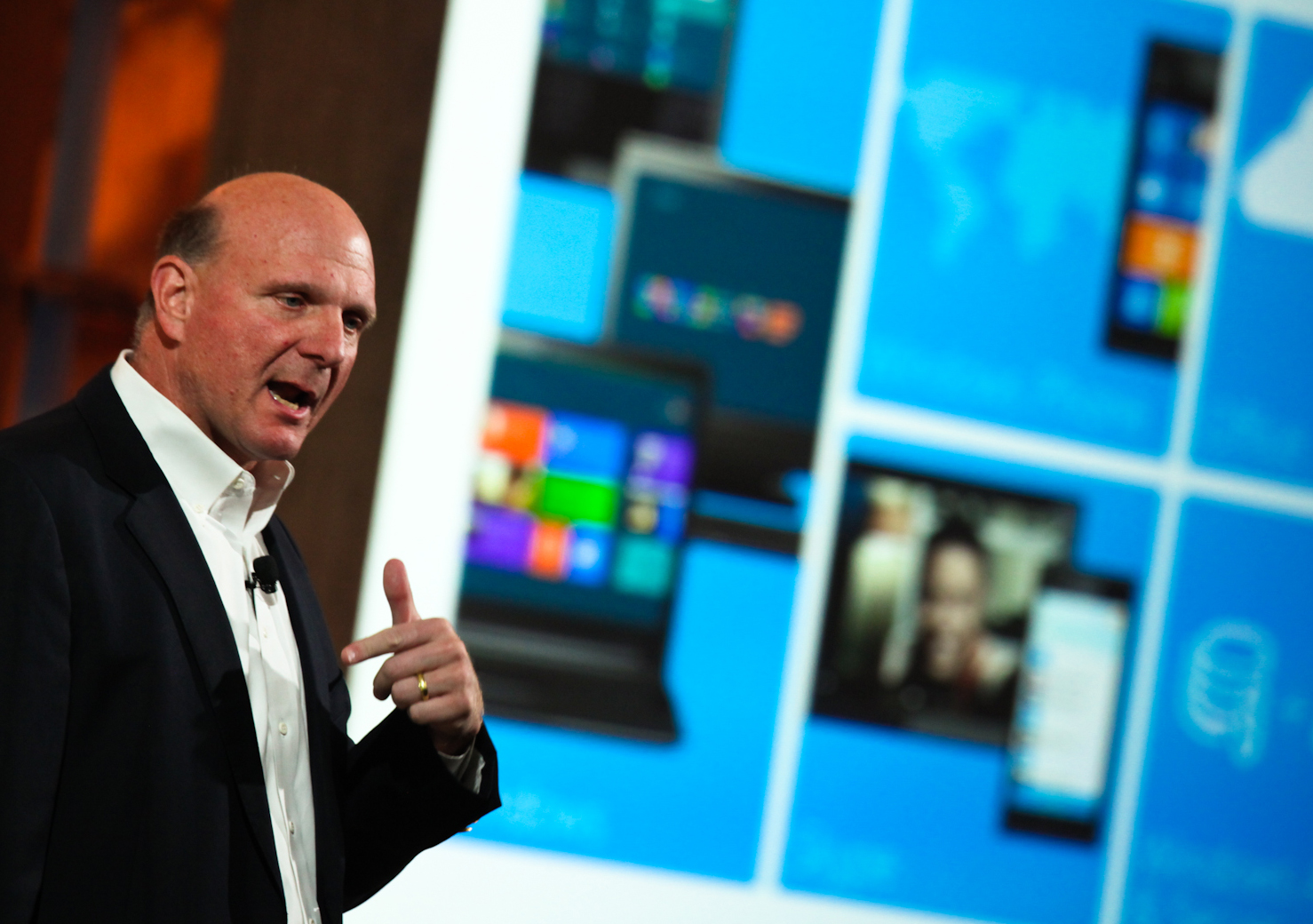
Alto, AOL's cloud-based mail service, launches in limited preview
Changing your email address can be a major pain. You’ve got to tell everyone about it, move your emails from the old account to the new one and so on. I know people who’ve been using Hotmail for the better part of a decade, despite loathing it, just because they don’t want the perceived hassle of switching to another service (or even upgrading to Outlook.com).
AOL’s new cloud-based email tool, Alto, is designed to avoid this problem by working alongside, or rather on top of, the main webmail services, rather than replacing them. You don’t need to sign up for a new email address, you just log in with your existing AOL, Gmail, Yahoo, or iCloud details. Once you’re in, Alto will help manage your inbox and cut back on clutter.

Ubuntu 12.10 'Quantal Quetzal' released
Ubuntu fans, be prepared to upgrade! Canonical, parent company of one of the most popular Linux distros available on Thursday released Ubuntu 12.10 "Quantal Quetzal" in desktop and server variants. It's labeled as a suitable alternative to Windows 8, coincidentally just before the October 26 launch of the latest consumer-oriented operating system from Microsoft.
On the desktop forefront, Ubuntu 12.10 "Quantal Quetzal" brings integration between cloud and desktop environments and integration with popular web-based applications, which Canonical claims is the next evolutionary step in the transition towards a cloud-based, multi-device world. The server variant includes the Folsom release of OpenStack, as well as deployment and management tools touted as a time-saving solution for developer teams that deploy distributed applications.

The debate is now Chromebook vs Surface, not iPad, for K-12 education
The cat's out of the bag, and we can all stop guessing as to what the Surface RT will cost. Microsoft confirms many things, namely that Steve Ballmer was spot-on with his estimates on Surface pricing roughly a month ago. The Surface RT is going toe-to-toe with the iPad down to the very last penny. That's a good thing.
One thing I'm curious about is how Surface will change the way K-12 looks at computing devices for the next generation of students. I've already penned my thoughts on why I believe the Surface could very well outshine the iPad in education. A big part of this winning equation has to do with the ecosystem that surrounds a given technology.

re7zip remotely extracts files from online archives
Although ISO files are a very convenient way to distribute software, then can often be very large, perhaps gigabytes in size. And if you only need maybe one or two files from the image, having to download the whole thing first will probably seem just a little annoying.
There could be an alternative, though. Re7zip is an interesting Java-based tool which can remotely extract files from an http-hosted archive, without having to download the full archive first -- and in some situations that could save you an enormous amount of time.

Cloud IT management service Panorama9 launches Linux and Mac support
Cloud-based asset management platform Panorama9 officially launched support for Linux and Mac OS machines on Wednesday, broadly increasing the amount of hardware covered in the still very young IT management dashboard.
Panorama9, a new player in the enterprise services space, provides IT asset and network management as a non-contract, subscription-based service beginning at $1.50 per user per month. The company claims it can be set up and deployed in as little as five minutes.

Google opens the door (virtually) to its data centers
Ever wondered what the inside of Google’s high-tech data centers look like? Or fancied taking a stroll around the server floor -- a place where only a select group of the company’s employees are allowed to tread? Well, the good news is now you can, virtually at least.
No, Google hasn’t fully unleashed its Street View trikes inside the data centers (more on that in a second), but it has given photographer Connie Zhou unrestricted access to them. The result is a website filled with striking, and surprisingly colorful high-res images of some of the most advanced server networks on the planet.
LinkedIn delivers new profile page
Changing a successful recipe is often met with skepticism, and judging by the introduction of Timeline in Facebook profiles that holds true as well for social netwoks. The business-oriented LinkedIn decided to launch a revamped Profile page, with improvements touted in three main areas. Will users embrace or reject the change?
Due to its business-oriented nature and purpose to deliver a virtual resume LinkedIn's new Profile page is designed to give its 175 million users an improved tool in marketing their skills and accomplishments. Compared to the current one the redesign gives a more up-to-date look and provides a different experience when viewing people's profiles, by focusing on the activity and connections. The redesign shows insights on companies and people on the network, which LinkedIn says makes easier establishing common ground with and connecting to people outside of one's network.

VirusTotal Scanner offers near-instant malware scans
If you’re worried about the safety of a file on your PC then uploading it to VirusTotal.com is a great way to get some piece of mind. The site will run it through more than 40 of the top antivirus tools -- GData, AVG, Avira, Kaspersky, they’re all here -- and let you know if any of them have raised a red flag.
There could be a lengthy delay while the file is uploaded, of course. But you don’t have to put up with that, because VirusTotal Scanner delivers the same results without having to upload the file at all.

WinZip 17 reaches for the cloud
Connecticut-based WinZip International LLC has updated the Windows version of its world-famous compression tool with a plethora of major new features, including cloud integration and sharing. WinZip 17.0 launches with the ability to zip, manage and share files directly from cloud-based services and social media sites.
Version 17 also adds tools for converting Office documents to PDF, resizing images and adding watermarks, plus revamps its interface in a move designed to make the program more intuitive to use.

Microsoft announces Xbox Music
Whether you think Microsoft wants to be Apple, or not, the company continues to roll out products designed to compete with its major rival. Today’s announcement is for Xbox Music, a digital music service for the Xbox games console, which will also appear as the default music player in Windows 8.
The service, which goes live tomorrow and will be available in 22 countries from launch, is a cross between Spotify and iTunes. Users will be able to listen to songs or full albums for free, create artist-based streaming radio stations, and put together music mixes and playlists. The iTunes element comes in the form of a music store, which will allow users to purchase and download tracks. The store will reportedly offer over 30 million songs, some four million more than Apple's store. There will also be over 70,000 music videos on offer.

Google releases mod_pagespeed, part of its effort to make the Internet speedier
Aimed at developers and webmasters, Google introduced the open-source Apache HTTP server module 'mod_pagespeed' in beta form almost two years ago, and now it is finally available as a stable release that is ready to be deployed.
Touting features such as automatic website and asset optimization, more than 40 configurable filters, open-source nature and individual deployment, mod_pagespeed is part of the Mountain View, Calif.-based corporation's efforts to improve the Internet experience by offering performance improvements to web pages. Together with PageSpeed Service, it's part of PageSpeed Optimization Libraries project that is designed to provide best performances practices for Internet pages.

Box touts bigger, better, all-new experience
Cloud storage service Box is changing with a fresh, new look and introduction of document editing and connections. Editing capabilities follow a recent trend, as Google and Microsoft add similar functionality to their online "Drive" services.
The cloud storage service has reached 14 million users and 140,000 businesses, and with the latest update promises a completely new experience with emphasis on collaborations and content.

Google Cultural Institute delivers history lessons through technology
History is often overlooked and rarely highlighted in technology, of lesser importance if you will. Google decided to put history in the foreground with the introduction of the Google Cultural Institute by using technology as a foundation.
Seventeen partners, including cultural foundations and museums, contribute to the project through their archives of letters, first-hand video testimonials and manuscripts, as well as other resources. The Google Cultural Institute offers 42 new historical exhibitions that are available for online viewing and includes stories detailing significant events of the 20th century. The Holocaust, D-Day and the Apartheid are all major turning points in human history, and highlighted in a digital form by the Mountain View, Calif.-based corporation.

Get a life! Microsoft isn't trying to be Apple
Yesterday's Steve Ballmer "devices and services company" letter unleashes a torrent of idiot punditry. I can only laugh at the sheer stupidity of writers infatuated with the idea Microsoft wants to be Apple, or putting forth such lunacy to sack pageviews.
Read Ballmer's 1,300-word missive again. Microsoft's focus on devices and services has little to nothing to do with Apple. The cloud-connected device era is here and Microsoft embraces it to maintain computing relevance. The company has been on this course for years. Research and development takes time, and the good ship Microsoft is too large to change course in a few months -- or even a few years. The sheer number of carefully coordinated new (and largely changed) products shipping simultaneously (or soon after) clearly indicates a massive undertaking long planned.

Steve Ballmer asks customers, partners and shareholders to believe in Microsoft
Today, Microsoft's CEO released his annual shareholder letter, which also is meant for customers, employees and partners. Steve Ballmer's looking back-peering ahead missive comes as the company stands on a precipice between the PC and cloud-connected device eras and seeks reinvention through an unusually strong late-year release cycle that includes Surface tablets, Windows 8, Windows RT and Windows Server 2012.
Under Bill Gates, Microsoft sought to put a PC on every desktop, with software innovation driving that effort. Ballmer describes post-PC Microsoft as a "devices and services company", which aptly describes the fundamental shift in progress. Services focus reminds of IBM, which dominated the mainframe era the PC displaced. This devices and services ambition "impacts how we run the company, how we develop new experiences, and how we take products to market for both consumers and businesses".
